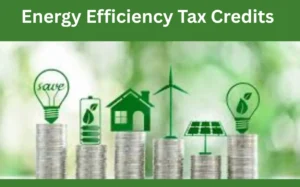Investing in real estate strategies can be a smart way to grow your wealth while keeping your tax burden in check. Many people don’t realize the potential for optimizing cash flow through strategic real estate investments. Whether you’re new to commercial real estate or a seasoned investor, understanding how to navigate these waters can significantly impact your financial success. From leveraging your real estate license to finding the right real estate agent, there are numerous paths to enhance your portfolio. Let’s explore practical strategies designed to boost your cash flow and cut taxes, helping you make the most of your real estate endeavors.
Maximizing Real Estate Investments
Real estate investments offer a unique opportunity to build wealth and create financial stability. This section explores the fundamental concepts of cash flow and tax benefits in real estate, providing a foundation for successful investment strategies.
Understanding Cash Flow
Cash flow is the lifeblood of real estate investing. It represents the net income generated from a property after all expenses are paid.
Positive cash flow occurs when rental income exceeds expenses, creating a steady stream of passive income. This surplus can be reinvested, used to pay down mortgages, or fund other investments.
Negative cash flow, on the other hand, means the property is costing more than it’s generating. While sometimes strategic for long-term appreciation, it’s generally not sustainable for most investors.
To calculate cash flow, subtract all expenses (mortgage payments, property taxes, insurance, maintenance, and vacancy costs) from the total rental income. This simple formula helps investors assess the profitability of their properties.
Real Estate Strategies for Tax Savings
Implementing effective tax strategies can significantly enhance the profitability of your real estate investments.
Depreciation Deductions
Depreciation is a non-cash expense that allows real estate investors to deduct the cost of their property over time, reducing taxable income.
The IRS sets specific guidelines for depreciation. Residential properties are typically depreciated over 27.5 years, while commercial properties are depreciated over 39 years.
To calculate depreciation, divide the property’s value (excluding land) by the appropriate number of years. This annual amount can be deducted from your taxable income, potentially lowering your tax bracket.
It’s important to note that depreciation recapture may apply when selling a property, so consult with a tax professional to understand the long-term implications.
Improving Cash Flow in Real Estate Strategies
Enhancing cash flow is a primary goal for many real estate investors. This section explores strategies for effective rental property management and leveraging commercial real estate to boost income.
Rental Property Management
Effective rental property management is crucial for maximizing cash flow and ensuring long-term investment success.
Regular property maintenance helps prevent costly repairs and keeps tenants satisfied, reducing vacancy rates. Implement a proactive maintenance schedule and respond promptly to tenant requests.
Setting competitive rental rates is essential. Research local market trends and adjust prices accordingly to attract and retain quality tenants while maximizing income.
Efficient tenant screening processes can help reduce turnover and potential losses from non-payment. Conduct thorough background and credit checks, and verify employment and rental history.
Consider using property management software to streamline operations, track expenses, and manage tenant communications. This can save time and improve overall efficiency.
Leveraging Commercial Real Estate Strategies
Commercial real estate can offer higher returns and more stable cash flow compared to residential properties.
Diversifying into different types of commercial properties, such as office buildings, retail spaces, or industrial warehouses, can help spread risk and maximize income potential.
Long-term leases, common in commercial real estate, provide more stable cash flow and reduce vacancy risks. These leases often include built-in rent escalations, ensuring income growth over time.
Consider value-add opportunities in commercial properties. Renovations or property improvements can justify higher rents and increase overall property value.
Networking with local businesses and real estate professionals can help identify lucrative commercial investment opportunities before they hit the market.
Conclusion
Investing in real estate provides a powerful avenue for building wealth while navigating the complexities of tax obligations. By employing strategic approaches such as maximizing cash flow through effective property management and leveraging depreciation deductions for tax savings, investors can significantly enhance their financial outcomes. Whether dealing with residential or commercial properties, understanding these strategies helps pave the way for sustainable, long-term success in the real estate market. As you continue to expand your real estate portfolio, remember that consistent analysis and strategic planning are essential for maximizing returns and minimizing risks. With the right knowledge and tools, real estate can be a rewarding venture that supports both your income growth and tax efficiency goals.




